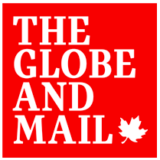SPECIAL TO THE GLOBE AND MAIL
PUBLISHED APRIL 24, 2025
It seems like putting the cart before the horse to be thinking about the next federal budget today. After all, there’s still an election to take place. Yet, once the election is over, the government will have to turn its attention pretty quickly to the finances of the nation, and a federal budget will not be far off.
Tax changes will be coming – regardless of who wins the election. On Dec. 13, 2024, the Standing Committee on Finance tabled in the House of Commons its 462 recommendations for the next federal budget.
The report
The report is prepared each year by the committee after prebudget consultations with individuals and groups across the country. And while the government isn’t obligated to include the recommendations in the federal budget, the ideas will be given consideration, and many will make the cut.
A read through the recommendations for the 2025 budget rang alarm bells in January in the charity sector when it became clear that the committee wanted to target faith-based charities. Recommendation 430 reads: “Amend the Income Tax Act to provide a definition of a charity which would remove the privileged status of “advancement of religion” as a charitable purpose.”
If the recommendation is adopted, it would mean that places of worship such as churches, mosques, synagogues, temples, and other charities could lose their charitable status and be unable to issue donation receipts to supporters.
The recommendation came as the result of suggestions from the BC Humanist Association (BCHA). Ian Bushfield, executive director of BCHA, said “we’re long overdue to revisit the assumption that religious groups are an inherent public good. We’re delighted to see that the members of the finance committee share this view.” Well, the majority of the Committee shares this view.
The history
The fact that Recommendation 430 made it into the finance committee’s report is deeply disturbing. It speaks to the ignorance of the majority of the committee of the role that religious charities have played, even to this day, in the well-being of Canadian society.
Charity lawyer Terrance Carter makes the point in a paper on the subject of Recommendation 430 that “religious organizations have played a pivotal role in establishing Canada’s early hospitals and providing aid to individuals in need and society at large. The first hospital, Hôtel-Dieu de Québec, was founded in 1637 by the Duchess of Aiguillon and the religious order of the Augustines Hospitalières of Dieppe in present-day Québec City.”
Also, various Muslim associations have supported newcomers to Canada, including those fleeing conflicts, such as the Lebanese and Somali civil wars, and the breakup of the former Yugoslavia. The influx of refugees and immigrants led to the creation of additional Muslim organizations to assist these new communities. One example is the Muslim Benevolent Society of London, which established Ontario’s first mosque in 1957. This mosque was later recognized by the Historic Sites Committee of the London Public Library Board for its significance in fostering London’s growth as a vibrant, multicultural city.
In addition, Canadian Christian think tank Cardus published research last November on the economic value of the contributions to society of religious congregations. The conclusion was that there is a “Halo Effect” of their activities. The Halo Effect is the dollar value of their socioeconomic contributions to society. The research calculates that the value of the tax exemptions and credits provided to these organizations and their donors is less than one-10th of the value that these congregations contribute socioeconomically.
The implications
Let’s suppose that the registered charity status of, for example, a local church was revoked. And suppose the church has some assets in the form of land, a building, and a little cash. What would happen?
Section 188 of our tax law imposes a “revocation tax” which would require the church to transfer all of its assets to a registered charity or municipality within one year. Failing that, the church would face a 100-per-cent tax on the value of its assets. That is, the church would effectively be required to hand the value of its land, building, and cash to the federal government.
The committee that made Recommendation 430 is made up of 12 Members of Parliament (MPs): six Liberals, four Conservatives, one NDP, and one Bloc. I have reached out to all members of the committee to ask whether or not they support Recommendation 430. At the time of writing, I have heard back from five: the one NDP and the four Conservative members, all of whom have said that they – and their parties – do not support Recommendation 430.
How MPs view this recommendation speaks much about their values. As for me and my household, the values of our candidates and their parties will affect how we vote.
Tim Cestnick, FCPA, FCA, CPA(IL), CFP, TEP, is an author, and co-founder and CEO of Our Family Office Inc. He can be reached at tim@ourfamilyoffice.ca
Download a copy of this article in pdf here.
North American Wealth Award Nominations 2020:
Finalist in 3 Categories
What do I want to share with my heirs about my values and life experiences while I still can?
What do other successful families do about educating future generations?
What would happen to my family and business if I were suddenly gone tomorrow?
Is it possible that there might be other tax ideas we haven’t considered yet?
Who will make the important decisions and coordinate things after I’m gone?
Do I wonder sometimes if our planning done in the past is still relevant?
Are my investments properly compensating me for the risk I’m taking?
Which of my investments or accounts are no longer serving their intended purpose?
What do I expect market returns to look like in the next five years?
What is my Strategic Asset Allocation?

